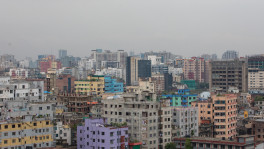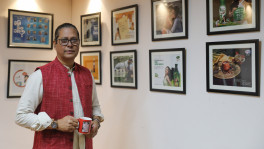India is dangerously close to becoming an also-ran
The belief that India has “lost” in most of its trade agreements is pervasive here

India's government will shortly find itself at a fork in the road. Will it choose globalization and export-oriented growth? Or will the isolationists in the ruling Bharatiya Janata Party win, and keep India out of a giant Indo-Pacific trading bloc?
This weekend, New Delhi hosted negotiators for the Regional Comprehensive Economic Partnership – from the 10 members of ASEAN as well as Australia, New Zealand, Japan, South Korea and China – in the hope that it could swing last-minute safeguards for some of its producers. Indian officials have stalled RCEP's progress as much as they could, and the others are now losing patience. One way or another, the deal will have to be concluded by November, when the leaders of the 16 RCEP countries will meet in Bangkok. Malaysia's Mahathir Mohammed, not a man known for patience, said in June that the other countries could go on without India, if necessary.
Many in New Delhi, even within the commerce ministry, would be relieved to see that happen. The belief that India has "lost" in most of its trade agreements is pervasive here. Influential lobbies tied to the country's laggard producers are happy to remind officials how trade deficits soared with members of the Association of Southeast Asian Nations after a free-trade agreement was signed some years ago, for example. And there has always been a strong isolationist wing within the Hindu nationalist BJP – right-wing ideologues don't just want India out of RCEP; they would prefer existing agreements with Japan, Korea and ASEAN be renegotiated, if not abandoned.
Of course, India can only be said to have "lost" if you ignore the considerable gains to consumers from cheaper imports. Once upon a time, Indian households had to worry constantly about high and variable prices of cooking oil. That's no longer a concern, thanks to imports of palm oil from Indonesia and Malaysia, in spite of the steep duties permitted by the Indo-ASEAN free-trade agreement. And when producers' lobbies complain about losing market share to Southeast Asia, they merely underline how uncompetitive Indian industry has become.
There is, in fact, a far better reason than any of these for India to feel doubtful about RCEP, and it's geopolitical more than economic. For Beijing, the trading bloc is just another method to ensure that the People's Republic embeds itself as the hub of Asia's economic geography. That's not something anyone in India is comfortable with. India runs a massive trade deficit with China, of course; but, even more than that, officials here are conscious that concluding RCEP in the middle of the Sino-US trade war would be a boost to Beijing. The problem is that all options for New Delhi are unappetizing. If only there was a large and comprehensive alternative to the RCEP that excluded China — but, of course, President Donald Trump has killed the Trans-Pacific Partnership, leaving Beijing in control of the future of Asian trade.
In the end, though, it's hard to see how India would be best served by turning its back on RCEP. In spite of his pro-trade rhetoric at places like Davos, Prime Minister Narendra Modi's government has started putting up tariff walls in recent years, as early attempts to boost Indian competitiveness failed to show quick enough results. This turn to protectionism needs to be reversed, if India has any hope of employing the millions of young people graduating its schools every year.
It's true that signing a sweeping free-trade agreement would be a significant change in direction for a government that is most comfortable speaking a 1970s-vintage language of import substitution, industrial policy and protective tariffs. But Indian negotiators have already moderated their demands considerably. New Delhi has made it clear that it would be satisfied with a two-track agreement that keeps some walls up against Chinese imports while opening up to the other RCEP countries.
I'm still hopeful that, come November, Modi's signature will be on this agreement. If nothing else, it would be a massive humiliation on the international stage for him to stand aside as all the other leaders of the Indo-Pacific come together to declare a new era is dawning. So much of Modi's domestic popularity is wrapped around the carefully constructed myth of his international importance, that this might be seen as an unacceptable political hit. At least that's what we should hope the calculations within New Delhi's corridors of power are – because, if not, then India is condemned to long decades of being an also-ran on trade and growth.


 Keep updated, follow The Business Standard's Google news channel
Keep updated, follow The Business Standard's Google news channel
















